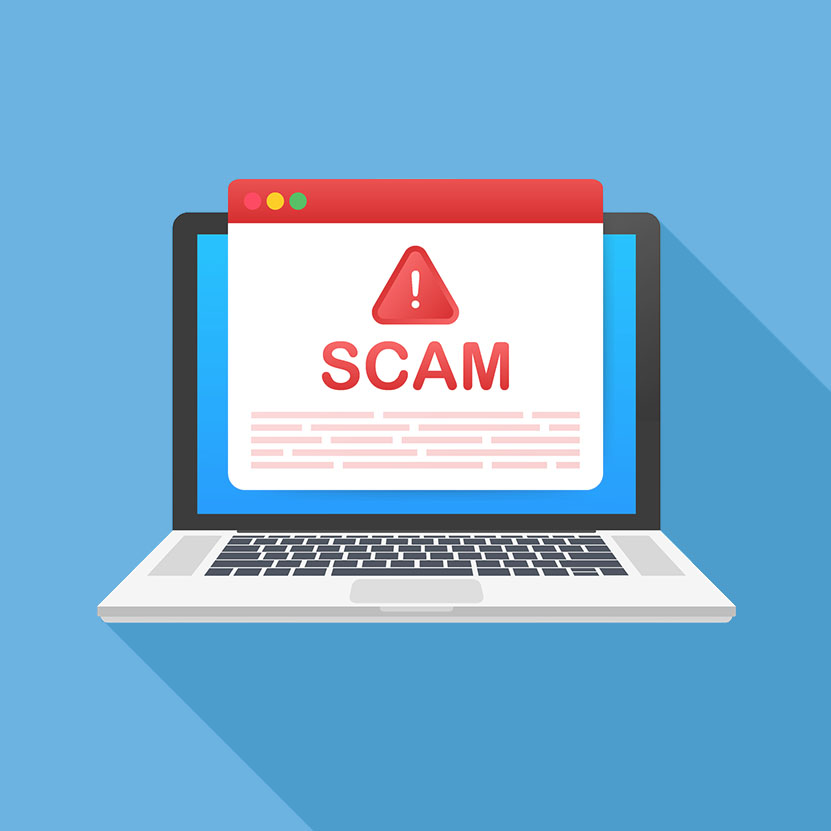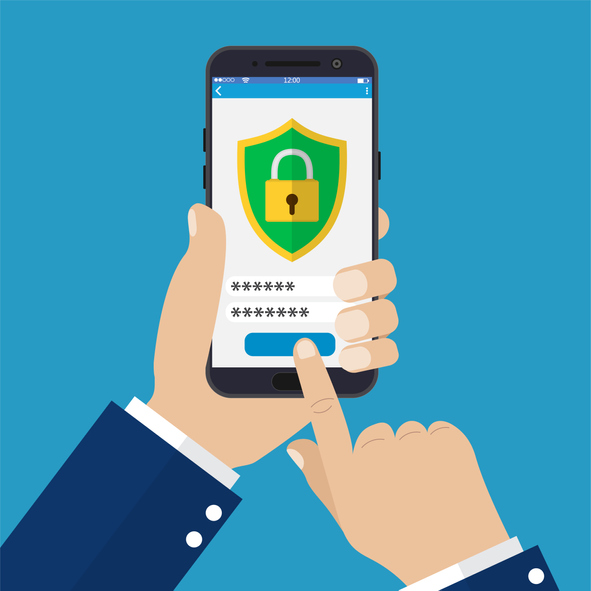Fraud & Scams
Please be aware that FLCBank will never call you to request your personal information, such as your Social Security number, your date of birth, your Online Banking username and password, your credit/debit card number(s), or the three-digit security code on the back of your credit/debit card.
The Federal Trade Commission (FTC) is the main agency that collects scam reports. Report your scam online with the FTC complaint assistant, or by phone at 1-877-382-4357 (9:00 AM - 8:00 PM, ET).
Visit the Federal Trade Commission Consumer Information site regularly to learn about recent scams and how to recognize the warning signs. Read the FTC’s most recent alerts or browse scams by topic.
The FTC also collects reports of identity theft. Report identity theft online at IdentityTheft.gov or by phone at 1-877-438-4338 (9:00 AM - 8:00 PM, ET).
Report fake websites, emails, malware, and other internet scams to the Internet Crime Complaint Center (IC3). Some online scams start outside the United States. If you have been a victim of an international scam, report it through econsumer.gov. Your report helps international consumer protection offices spot trends and prevent scams.


Fraud Text Message Scam
We have received reports from customers that have received a text message about their account requesting personal information to verify the account or transaction. This link is FAKE. Delete the text and please note FLCBank will also not call or text you to request personal information. If the call or text sounds suspicious, please do not respond.
Fraud Using FLCBank’s Name & Reputation
FLCBank Executives and Officers Impersonation
We have recently learned of a scam where a fraudster impersonates a FLCBank executive (for example, John Abbott, CFO) in an email, social media (e.g., Facebook) message or text message, informing the intended victim that they need assistance with moving a sum of money from a foreign bank account. Prior to the transaction taking place, the impersonator will request an “advance fee” of some type, which is where the loss to the victim takes place. If you receive an email, text message or social media message of this type, we strongly advise you to delete the message. You may verify the authenticity of any message from FLCBank by contacting us at cybersecurity@flcb.com.
Imposter Websites
The evolution of the internet has brought with it a number of extremely convenient advances in the way we shop, bank, and interact with the world around us. At the same time, that evolution has also given way to new risks—new avenues for criminals to create websites that are either fake, fraudulent or a scam to rip off the unsuspecting.
Imposter websites are designed to appear legitimate and even mimic/clone the brand look of a business. The cloned page will use the same images, content and page navigation of business but the logo, login screen, contact information and URL has changed. The website actually serves as a vehicle to compromise users’ personally identifiable information or login credentials for the purpose of effecting financial fraud.
Protect Your Personal Information Online
Be stingy with your personal information when you’re on the web. When a site asks for your personal information, know that the data you enter could end up in the wrong hands. A web site might look like the real deal, but many are fronts for criminals waiting to steal your money and personal information.
Research a company before choosing to give it your business. Enter the company name and the word ‘complaints’ into an online search engine to see what comes up. And take the time to ask a company for the details on state or government licenses. If a company can’t provide the information or if you can’t find the details searching government agency sites, it could be a red flag.
Coronavirus (COVID-19) Scams
Because of the uncertainty many of us are feeling due to the coronavirus (COVID-19), scammers are viewing this time as an opportunity to capitalize on people’s fears and vulnerabilities. There’s no reason to panic, but you should be vigilant and take the appropriate, if not additional, precautions to ensure you and your finances remain secure.
One recent scam that has surfaced involves the upcoming stimulus checks the federal government will issue nationwide. Scammers are claiming to work for the government and are targeting individuals through calls, texts, emails and websites. They are asking for personal information in return for a stimulus payment.
Remember: Never provide information such as your Social Security number, bank account number, PayPal account information or anything else that could put your personal information at risk.
We understand people may want to support local businesses and individuals who have been impacted by the coronavirus. However, it is important to verify the legitimacy of organizations and individuals to protect your personal information and accounts. Scammers are targeting victims by impersonating charities, medical professionals and health authorities.
Here is a list of additional COVID-19 scams that have recently surfaced:
- Treatment scams: Scammers are offering to sell fake cures, vaccines and advice on unproven treatments for COVID-19.
- Supply scams: Scammers are creating fake shops, websites, social media accounts and email addresses claiming to sell medical supplies currently in high demand, such as surgical masks. When consumers attempt to purchase supplies through these channels, fraudsters pocket the money and never provide the promised supplies.
- Provider scams: Scammers are contacting people by phone and email, pretending to be doctors and hospital staff who have treated a friend or relative for COVID-19. They are then demanding payment for that treatment.
- Charity scams: Scammers are soliciting donations for individuals, groups and areas affected by COVID-19.
- Phishing scams: Scammers posing as national and global health authorities, including the World Health Organization (WHO) and the Centers for Disease Control and Prevention (CDC), are sending phishing emails designed to trick recipients into downloading malware or providing personal identifying and financial information.
- App scams: Scammers are creating and manipulating mobile apps designed to track the spread of COVID-19 to insert malware that will compromise users’ devices and personal information.
- Investment scams: Scammers are offering online promotions on various platforms, including social media, claiming that the products or services of publicly traded companies can prevent, detect or cure COVID-19, and that the stock of these companies will dramatically increase in value as a result. These promotions are often styled as “research reports,” make predictions of a specific “target price,” and relate to microcap stocks, or low-priced stocks issued by the smallest of companies with limited publicly available information.
As similar scams are likely to arise in the coming weeks and months, remember to be mindful and protect yourself and your finances. Please share these tips with everyone in your family regardless their age, especially elderly family members, as they seem to be targeted more often.
Notify Us of Fraud and/or a Scam
To notify us of online fraud, identity theft or a scam involving FLCBank or your FLCBank account, please call the 800.318.3159, Monday through Friday, 9:00 a.m.— 5:00 p.m. (EST) or e-mail us at cybersecutiry@flcb.com. Please include your name, e-mail address, telephone number and a detailed description of the possible fraud or scam.
